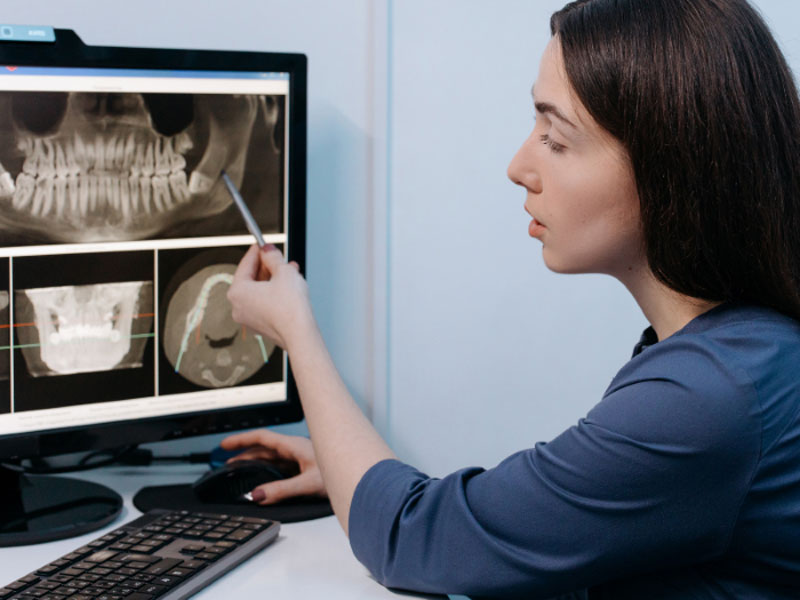Am I Too Old for Wisdom Tooth Extraction?

These days, many people have their wisdom teeth removed in their younger years. It is common for this procedure to be performed on those who are under the age of 25, as the removal of these teeth tends to be easier in younger patients. With that said, is there anything that can be done if you need your wisdom teeth removed at an older age? Of course! If your wisdom teeth are giving you trouble, and you think they may need to come out, contact our office for more information.
Missing the Sweet Spot
For most patients, the span of years between 18 and 24 is considered the sweet spot for wisdom tooth removal. This is the case because of how wisdom teeth develop in most people. Trying to extract them before the age of 18 can be difficult due to a lack of root structure. The tooth may be difficult to manipulate during the procedure, making it more difficult than necessary.
On the other end of the spectrum, it can be hard to take out wisdom teeth after the age of 24 because they will have established themselves in the mouth. The root structure will be secure, and there will be more potential for complications. This is why you probably know many people that have had their wisdom teeth removed during their college years. From a dental perspective, this stage of early-adulthood is perfect for removing wisdom teeth with as little difficulty as possible.
Despite the fact that the prime conditions for extraction usually take place between ages 18 and 24, you don’t have to give up hope if you are beyond your 25th birthday. Sure, it is possible to deal with additional complications as an older patient, but it is important to remember that leaving these teeth in place can offer other complications. Don’t rule yourself out for wisdom teeth removal just because you are older than the ‘ideal’ range. Each case is unique, and working with your dentist is the only way to settle on a proper course of action.
Identifying a Need
The first step toward deciding whether you should have your wisdom teeth removed is simply to figure out whether they are causing problems in the first place. You might feel pain in this area of your mouth, but that is not enough to be considered conclusive. The pain you are experiencing should cause you to contact your dentist for a closer look – from there, you will want to leave things up to the expert.
Your dentist is going to take a look at the affected area of your mouth, and x-rays will likely be ordered. It may be that your wisdom teeth need to come out, or it may be that there is some other issue that can be addressed first. The removal of wisdom teeth is a significant procedure, especially in an older patient, so other options will be considered first. There is no substitute for quality advice from an experienced dentist in this case.
The Pain Game
Many adults who still have their wisdom teeth decide to keep them because they are afraid of the pain they will experience as part of this procedure. And while it is true that there can be some pain associated with having your wisdom teeth removed (at any age), it may not be as bad as you have been led to believe.
First, you will be numbed in the area of the procedure prior to getting started. So, while your teeth are actually being removed, you should feel no pain at all. This is a great relief for many people, who assume the procedure itself will be a long and painful situation. Just like any other procedure performed on any part of your body, everything possible is done to keep the patient comfortable and relaxed.
It is after the teeth have been removed when the pain may begin to become an issue. However, it should be noted that the experience of each patient is unique. Some patients do have to work through a painful recovery process, while others are relatively comfortable in the days after the extraction. Caring for yourself properly – doing things like keeping your head elevated and using an ice pack to limit swelling – will help keep you as comfortable as possible.
A Dietary Adjustment
One of the biggest issues that stems from having your wisdom teeth removed is the adjustment you will need to make to your diet for a period of time. This isn’t a particularly big deal in the long run, but you will want to be prepared with the right foods on hand. For the first 24 hours, you are likely to be placed on a liquid diet, which is followed for a few days by a soft foods diet. You won’t be allowed to chew anything significant for the first week, nor will you want to. As you continue to heal, you will be allowed to gradually move back to your normal diet.
Think About Work
For young people who are still in school, wisdom teeth are often removed in the summer when they are on break. That doesn’t really work for most adults, as work is a year-round commitment. So, if you are going to have your wisdom teeth taken out, you will need to think about when to schedule the procedure. It is common to have the work done on a Thursday or Friday, so you can use the weekend to recover. Of course, you can’t perfectly predict your recovery timeline, so notify your employer and plan your schedule accordingly.
If you are beyond the ideal age for wisdom teeth removal, but you feel that your wisdom teeth are causing problems in your mouth, contact us at Pacific Northwest Prosthodontics to make an appointment right away. Our prosthodontists have special education and training in cosmetic dentistry and our goal is to help you achieve optimal oral health and a winning smile. There is still plenty that can be done to care for your oral health, including removing your wisdom teeth if necessary. Thank you for taking the time to visit our blog, and we hope to see you soon!

 (425) 549-4649
(425) 549-4649







